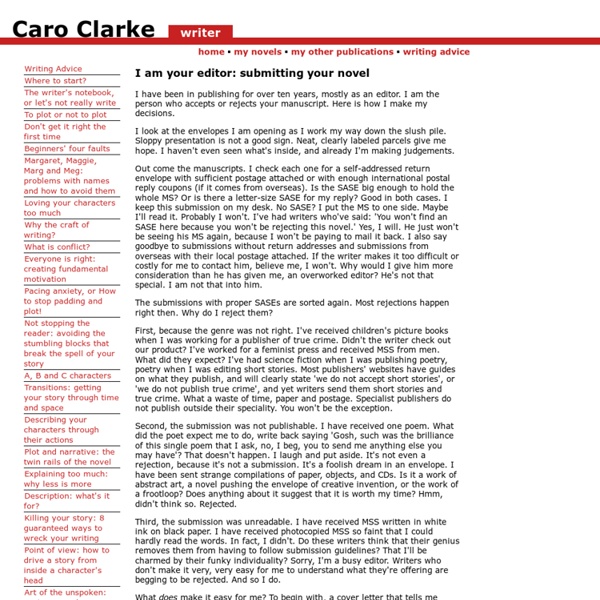I am your editor
I have been in publishing for over ten years, mostly as an editor. I am the person who accepts or rejects your manuscript. Here is how I make my decisions. I look at the envelopes I am opening as I work my way down the slush pile. Out come the manuscripts. The submissions with proper SASEs are sorted again. First, because the genre was not right. Second, the submission was not publishable. Third, the submission was unreadable. What does make it easy for me? Those still on my desk get their cover letters read in full. I also enjoy the breathy cover letter that explains the psychology of the characters, the themes of the book, and the spiritual depths of the author: 'This is a sensitive, brilliant, yet deep-felt novel exploring what it means to open yourself to the love that flows through the universe. Now I have a much reduced pile of not-yet-rejected MSS. It is at this point, and only at this point, that I start reading. Scary, isn't it? What do I read? I can't?
Creative Writing For Dummies Cheat Sheet
Rewriting and editing helps to tighten up your work. But it can be difficult – what to chop and when to stop may not be clear, and you may change your mind more than once during the process. Ask yourself whether you need to take out: Unnecessary information and explanation. Passages of dialogue that go on too long. Clunky descriptions that give too much detail. You may need to add or expand: Something you know but have forgotten to tell the reader; perhaps the age of the main character. You may need to move: Dramatic sections to make a stronger opening. In your final edit: Check for grammar, punctuation and spelling mistakes.
Related:
Related:



